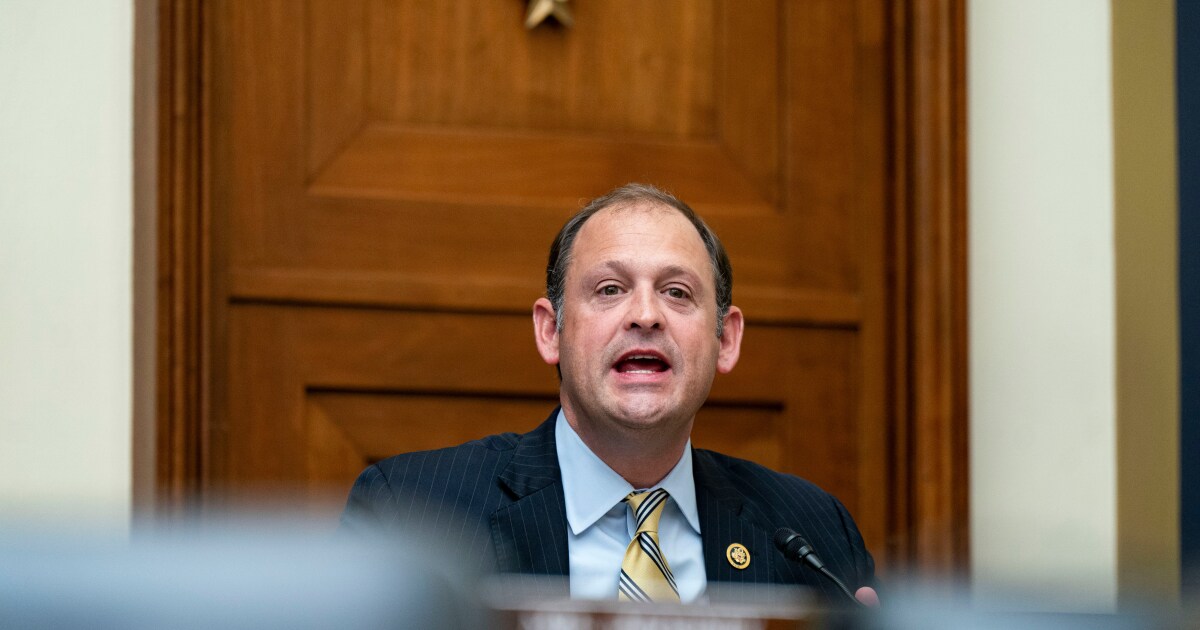Surging long-term interest rates and stubborn inflation are inflaming divisions among congressional Republicans over paying for the sweeping tax cuts Donald Trump promised, complicating the path to passage with the party’s already tenuous majority.
“The bond vigilantes are coming,” Representative Andy Barr of Kentucky warned a group of House Republicans behind closed doors on Wednesday, resurrecting a catchphrase of the 1980s and 1990s, when concern over high interest rates set by the bond market drove Washington to take painful steps to bring down budget deficits.
Barr, a senior member of the Financial Services Committee, pointed to a jump in long-term rates since September. “This is a tipping point,” said Barr, a firm tax-cut supporter, urging his colleagues to come up with credible spending cuts to assure bond investors the federal deficit won’t balloon.
The mood in markets and the nation’s financial situation are starkly different from 2017, when Trump and congressional Republicans passed a deficit-expanding tax cut. Yields on benchmark 10-year Treasury notes touched 4.8% this week, double what investors demanded just before Trump started his first term. Total US government debt held by the public reached almost 100% of the economy’s size last year, up from 76% in 2017.
Fresh deficit projections due Friday from the nonpartisan Congressional Budget Office are expected to show a worsening fiscal outlook as higher rates add to the cost of the government’s debt-servicing payments.
Cost-of-living concerns loom large after an election in which public discontent with the surge in prices in recent years was pivotal. Americans’ long-term inflation expectations jumped this month to the highest since 2008, according to the latest consumer sentiment reading from the University of Michigan. And Trump’s plans for broad new tariffs threaten to stoke more price increases.
The bond market’s travails have pushed mortgage rates back up above 7%, putting homes out of reach for more Americans. Higher yields also threaten to undermine the bull market in stocks.
None of this has cooled congressional Republicans’ enthusiasm for large-scale tax cuts. But it has intensified fiscal conservatives’ calls to offset revenue losses with substantial spending cuts, stoking further conflict within the party’s fractious and slender majority.
In the House, the defection of just a few Republicans can defeat any party-line legislation. GOP leaders already face internal struggles over causes such as California and New York lawmakers’ demands to lift a ceiling that the 2017 tax law imposed on deductions for state and local taxes.
Meanwhile, Republicans’ dominant establishment wing has long favored spending more on defense, agriculture and other projects important to their individual districts. Trump himself is among those calling for a military build-up and wants more resources for border security. The sweeping spending cuts the party’s fiscal conservatives demand also risk backlash from key political constituencies that could endanger lawmakers representing competitive districts.
But hardline conservative Chip Roy of Texas laid down a marker on the House floor Wednesday, saying spending cuts should be at least big enough to pay for the tax cuts so that the deficit will shrink rather than expand.
“As we speak, interest rates are going up, our debt is getting refinanced at higher interest rates, and we have more debt,” Roy told the House. “The American people didn’t send us here to keep racking up debt.”
Trump’s nominee for Treasury secretary, Scott Bessent, expressed concern Thursday at his Senate confirmation hearing that maintaining current budget deficits would threaten the government’s capacity to respond to a future crisis. But he blamed spending levels, not tax cuts.
Until recently, interest rates had largely remained subdued, going back to the 2008 financial crisis — reducing the burden of borrowing costs for the U.S. government as well as consumers and businesses.
Not anymore. The COVID shutdowns and subsequent massive government stimulus reset things not just for the U.S., but the global economy. Inflation has since been persistently higher.
Yields on 10-year Treasury notes have climbed roughly a percentage point since mid-September, even after the Federal Reserve embarked on a course of cuts to its short-term benchmark rate — a jarring disconnect that has few precedents in recent history. The jump in longer-term yields is partly due to the economy being stronger than expected, but Trump’s agenda of tax cuts and tariff increases also has provoked anxiety.
“The bond market has begun to express their discomfort, and inflation being sticky is also a warning for Trump 2.0,” said Stephen Jen, chief executive of Eurizon SLJ Capital.
It’s likely that the dollar’s dominant role in global finance will continue to shield the U.S. from the kind of fiscal scare that has shaken other governments, such as the U.K. and Italy, as investors demanded a higher premium to hold their debt, Jen said.
“The U.S. will probably enjoy a higher ‘boiling point’ than Italy did,” said Jen. Even so, investor worries are sufficient “to start to price in this risk through a higher term premium,” he said — referring to the extra yield demanded for longer-term securities instead of just rolling over holdings of short-term ones.
Republican Rand Paul of Kentucky, who has tried for years to slash the budget, said rising long-term rates have “unmasked the problem” of the national debt and prompted behind-the-scenes debates among Republicans over how much new debt is acceptable. But he said the members of his party who don’t want big spending cuts remain dominant.
“Everybody professes to care,” he said. “There is a very small number that would actually cut serious spending.”


 Economics1 week ago
Economics1 week ago
 Economics1 week ago
Economics1 week ago
 Economics6 days ago
Economics6 days ago
 Finance1 week ago
Finance1 week ago
 Economics1 week ago
Economics1 week ago
 Blog Post6 days ago
Blog Post6 days ago
 Personal Finance6 days ago
Personal Finance6 days ago
 Finance6 days ago
Finance6 days ago












